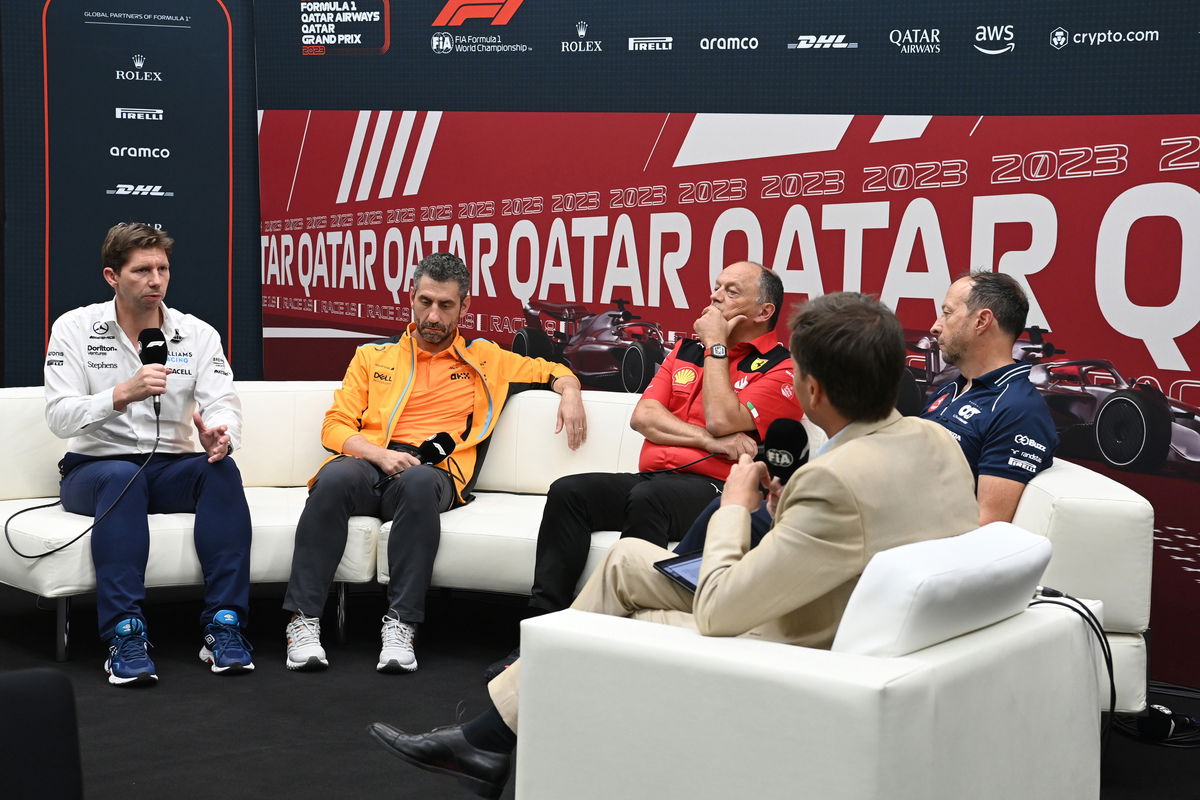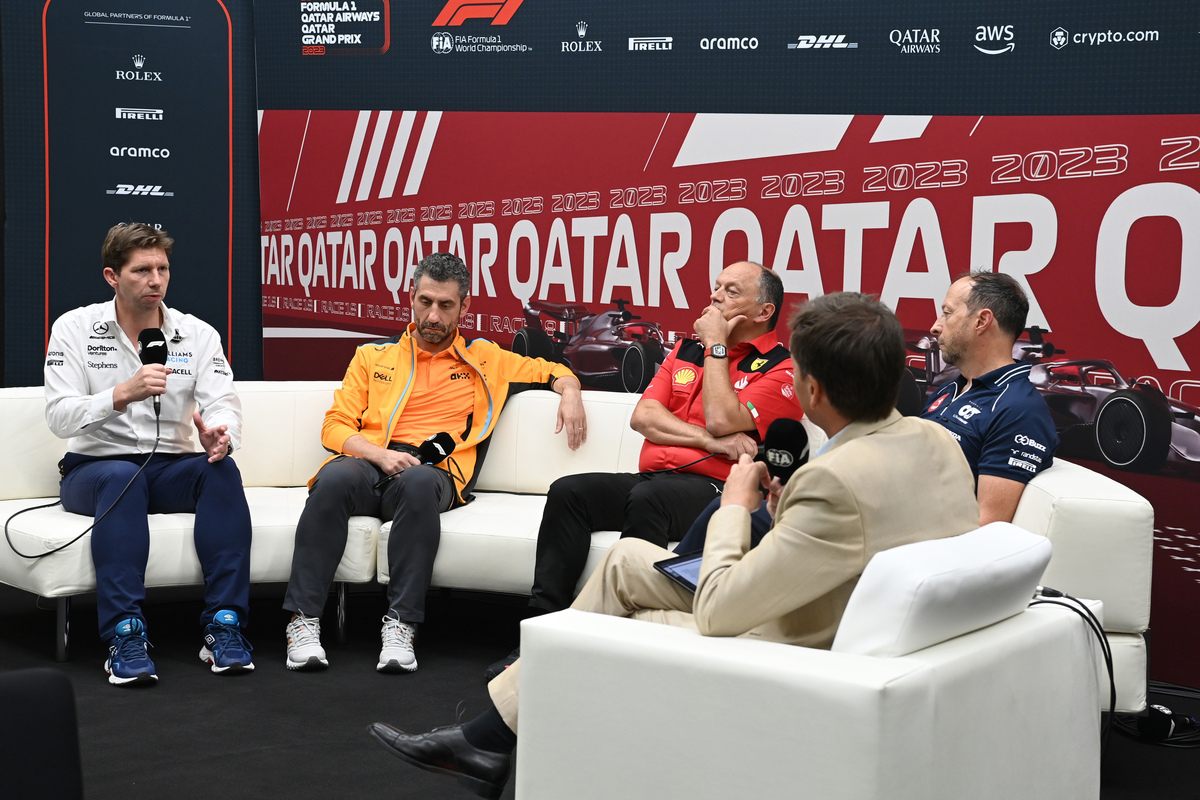

Ferrari and Williams team bosses have expressed their displeasure at the concept of Andretti Global being granted entry into F1.
Earlier this week, the FIA revealed the American operation had been approved to progress to the ‘next phase’ of the selection process.
It was the only one of the four entities that submitted expressions of interest, the others being Lkysunz, Rodin Cars, and Hitech.
The approval followed an intensive vetting process that looked at the team’s sporting and technical capabilities, among other factors, as well as its financial health.
The FIA’s comment prompted a response from F1 itself stating that it “will now conduct our own assessment” of Andretti’s application.
Its interest is largely financial and the impact it might have on the sport from a commercial standpoint.
“Williams is against the addition of an 11th team and very strongly against,” explained James Vowles, Williams’ team principal.
“My responsibility is to 900 employees within my company.”
Vowles argues that Williams has consistently made a loss and will continue to do so in at least the short term as it invests to boost its on-track competitiveness.
That, he reasons, demonstrates that while the sport is growing, it is still in a precarious position and the introduction of a new team jeopardises those that already compete.
“We believe in the direction of travel of the sport,” Vowles added.
“But it should be known that this isn’t just us who are not financially stable, I’d say probably half the grid aren’t.
“The addition of an 11th team is a sensible thing, but only at the point where the 10th team on the grid is financially stable.
“I’m fortunate to have owners that really believe in what we’re doing and to invest in what we’re doing but we need to take care of the sport to make sure we look after that.”
Vowles’ Ferrari counterpart, Fred Vasseur, holds a similar view.
Formerly the CEO at Alfa Romeo Sauber, Vasseur sees the problem through the lens of both a small and a large team.
Under the Concorde Agreement, the commercial contract which underpins much of F1, there is capacity for an additional team.
However, that capacity was left open in an attempt to lure in a new engine provider at a time when Renault and Honda looked set to leave the sport.
“We opened the door to the eleventh team in case of they could bring something substantial to the F1, and I think this, at this stage, was mainly the engine,” Vasseur explained.
“We have to keep in mind that three or four years ago, we had almost half of the grid quite close to bankruptcy.
“We have to avoid to be arrogant. F1, the life is a cycle. We don’t know what could happen before 2030.”
The opinions of Vowles and Vasseur are not uncommon within the paddock, but they’re also not universal with others more open to the concept of another team on the grid.
McLaren has expressed its support, though should be noted its CEO, Zak Brown, has deep links with Andretti Global owner Michael Andretti.
While vocal in their opinion, the teams ultimately have no say on the fate of Andretti’s entry.
The key now for the American operation will be demonstrating it can add commercial value to the sport and help compensate its rivals for the dilution of the prize money pool, above the $200 million anti-dilution fund.
Its cause will be somewhat covered by the sport’s continued growth, so long as it does continue to grow, as teams share in much of the sport’s commercial revenue.
Opening new markets, attracting new partners, and connecting with new demographics are critical to the sport continuing the trajectory it is currently on.





















Discussion about this post